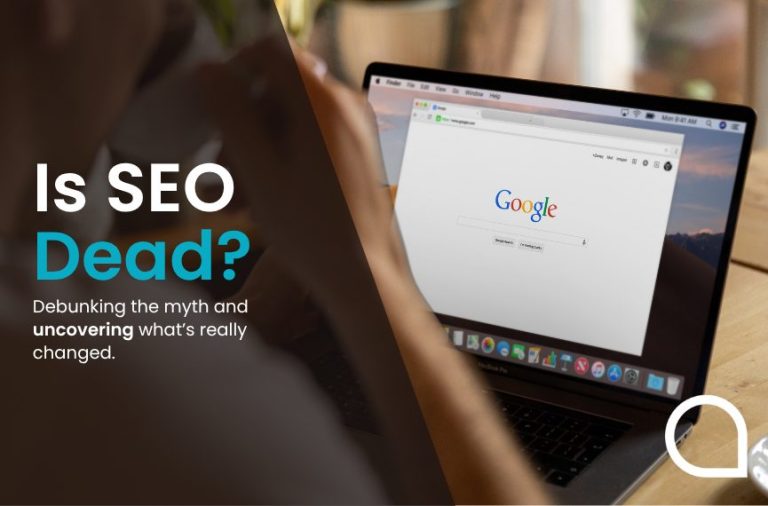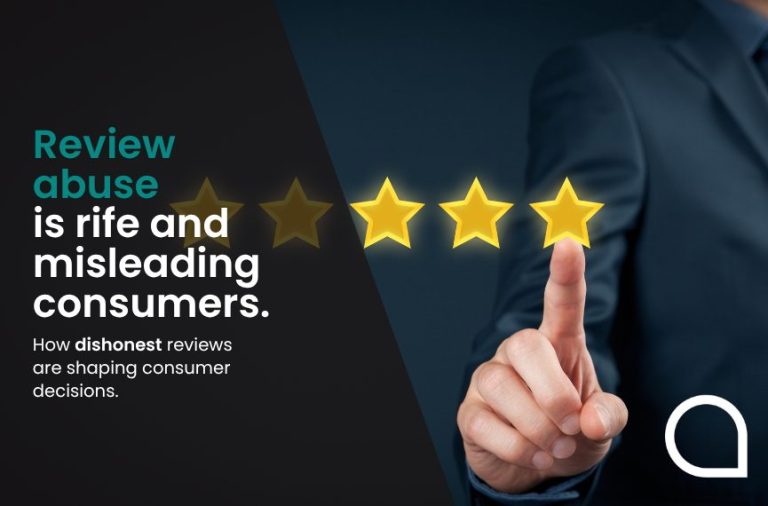Few things annoy me more than deceit and misrepresentation, so when I received two identical ‘reputation management’ emails this week, seconds apart, I felt compelled to call out these charlatans.
Businesses throughout the UK have found themselves harangued by emails and telephone calls trying to sell ‘reputation management’ services. It seems that everyone these days is selling a product which is the panacea for all your ills. Sadly, however, most of them are simply not fit for purpose and in many cases, a dangerous deception.
And the terms ‘reputation management’ and particularly ‘online reputation management’ are frequently misused and this has lead to increasing confusion in the minds of business owners.
What was Reputation Management?
To properly understand reputation management, we need to go back to the days before the internet existed. Back then, reputation management was very much restricted to the rich and famous and larger businesses, all of whom wanted the public to see them in a favourable light.
To do this, they employed Solicitors, PR Firms and Advertising Agencies, who between them, ensured bad stories never saw the light of day and good stories were promoted extensively.
Like it or not, the system worked.
Fast forward to 2021 and the internet changes everything.
The instant nature of social media and the global reach of the internet means that unthinking, childish pranks can turn into global catastrophes.
Recently, you may have heard about a schoolgirl in America who’s immature five second Snapchat post from 2016 came back to haunt her in 2020. In the space of a week she lost her place in the high school of her choice, become a globally known name and suffered a backlash of online hate.
Her reputation was destroyed in moments. And for many high profile individuals and businesses, this type of digital backlash and moral indignation could destroy years of hard work almost overnight. Once unleashed, it has the power to destroy businesses and lives.
Managing your reputation online therefore is quite a tricky prospect. Most people have little concept of what this entails and most businesses have neither the time, nor the inclination to deal with it, especially if they are growing fast.
Cue the introduction of ‘online reputation management services’.
What exactly do ‘online reputation management services’ provide?
As you might expect, what you get depends on what you pay but at the lower end, the offerings are woeful.
Some well known, well established businesses, offer ‘reputation management’ services which are nothing more than ensuring your company name, address and telephone number are copied correctly across a range of directories. What they don’t tell you when they sign up for this annual recurring service is that the whole system is automated. And pointless. It neither protects your reputation nor adds to it from an SEO point of view.
In addition to these basic listings, some of them offer to link your social accounts in one place, again something you can do yourself for free, and to help you manage your responses to the inevitable comments, opinions and reviews that customers will leave across all these listings you have created.
And this is part of the problem. To have an online presence these days you are pretty much obliged to have a Google My Business listing and once you have it, people can leave comments. The same applies on Facebook and there are many other ‘review’ type websites that will allow people to leave a review of your products or services, without you even knowing in some cases.
Higher up the scale, there are products which can monitor across a range of platforms, actively looking for your company name and alerting you to when and where people are leaving reviews. This is slightly more helpful as you can then jump on and do something about them, but again, the poor business owner is left to manage a ‘whack-a-mole’ solution which can be endlessly frustrating, time consuming and in many cases, futile.
Finally, at the top end, there are the professional bespoke solutions. These typically involve a good Solicitor, a professional PR firm and a high end Digital Marketing firm. This is the type of work we do. Working in partnership, this approach generally delivers the best response as collectively they can work to remove inappropriate or inaccurate information and to ensure that what appears online is the positive news the business or individual wants.
So, pretty much what used to happen before the Internet appeared.
But the big problem for most businesses these days is understanding whether what they are being offered for reputation management is a worthwhile product, or simply snake oil.
Is this a ‘genuine’ offering?
As an example, this week two emails arrived in my inbox within minutes. Clearly from the same person (despite the differing Gmail accounts) they contained exactly the same message.
With a message headline of “Get More CustomerReviews!” It went on to say;
Hello,
Hope you are doing great
Our Team has significant Experience to add 5 star Reviews on Google, Face book, rip-off, yelp, trip adviser, scam book etc. to enhance your online reputation with Positive comments, reviews and posts. Enhancing the impression created by your search results, will help you achieve a HIGHER Sales Conversion rate (both Online and Offline).
We have expertise in following functional domains for Businesses and Individual level:–
1. Positive 5 Star Facebook Reviews
2. Positive 5 Star Google Reviews
3. Positive 5 Star Trip Advisor Reviews
4. Positive 5 Star Yelp Reviews
Please let us know if you are interested in Online Reputation Management. We have 100% Success Rate and ready to sign Non-Disclosure Agreement (NDA)
Please feel free to reach us for more information on pricing and references.
Kind Regards,
Now, as you see, this type of cold email with its garbled English and unconventional punctuation is unlikely to fool most people, but alarmingly, it may catch someone at the very moment they have been alerted to a negative review, and they could mistakenly believe that this is what they need.
The problem with this is that it lays bare the current fixation the larger real estate owners such as Google, Amazon and Facebook, have with reviews.
They argue, quite compellingly, that you can’t disagree with the ‘voice of the crowd’. If a lot of people are leaving bad reviews for you, your service or products must be poor. QED.
Logically, this makes sense. If you’re getting lots of poor reviews you probably need to do something about your product or service levels.
But their confidence in this system and their belief that this process is fair is predicated on two assumptions.
First, they assume that all reviews are genuine. Second, they assume that all reviews are equal.
And they are wrong in both cases.
As you can see from our friendly email above, there are many online services who will promise to wallpaper Facebook and Google plus many other platforms with wonderful things about you and your business. Of course, when you say this to Google and Facebook they assure you that they can spot this kind of fraud and they will deal with it.
But they can’t and often, they don’t.
And this brings us to the second assumption, that all reviews are equal.
Ask any statistician how many you need to make a meaningful sample and you will get a range of answers. But I bet you none of them say less than ten and many, I’m sure, will opt for 100 or more.
Now look at local business reviews and tell me, how many small local firms can you find with more than 100 Google or Facebook reviews? They are rarer than hens teeth.
And of course, what this also does is it means negative reviews are disproportionately effective in this online space. A disgruntled ex employee or a competitor can leave a damning review for you which is enough to put off potential customers. We know that people research online before committing to spend money, so this type of view is extremely damaging.
The problem here is that the onus is on the business owner to prove to Google, Facebook et al that the review is fake, false or malicious and frankly that’s a pretty high hurdle to leap. We know, as we have been faced with this for some of our customers, and Google in particular have refused to remove a fake review, even when we can prove it is fake.
Business owners are left high and dry by this system and with no control over who can leave a review, or where, it is open to extensive abuse. And as you can see from the email we were sent, it is being abused.
‘Rip Off report’ is not for leaving positive reviews, nor is ‘scam book’; they are for slating companies and accusing them of ripping you off. Whilst the email talks about positive reviews, it’s simply a matter of spending power before these can be converted to negative reviews.
And worst of all, none of the ‘reputation management’ tools that people are signing up for can do anything about this.
Should you buy reputation management services?
Before you spend your hard earned cash on any online reputation management services, there are a few things you can do.
First, you can assess carefully whether what you are being offered and if you can’t see a clear, tangible benefit that will bring a direct positive result to you or your business, just walk away.
You should consider whether the offering is designed to do something for your personal reputation, or business reputation; it shouldn’t be trying to do both as it can’t. If it’s trying to help your business reputation, can you do it yourself, and is what they are offering actually any value at all (hint – most services aren’t). If it’s for your personal reputation, do they have any idea what the problem is and how to solve it?
If the problem is with personal reputation management, where people are writing awful things about you online, software won’t help. You will need to take professional advice and should contact a firm that can help you with this.
Above all, if you are unsure, ask a professional. Because from experience, trying to clean up a botched attempt to clean up an online reputation can sometimes be harder than fixing the original problem

Written by Jonathan Guy, Managing Director at Aqueous Digital
Jonathan Guy advises companies and individuals in relation to online Reputation Management matters.





